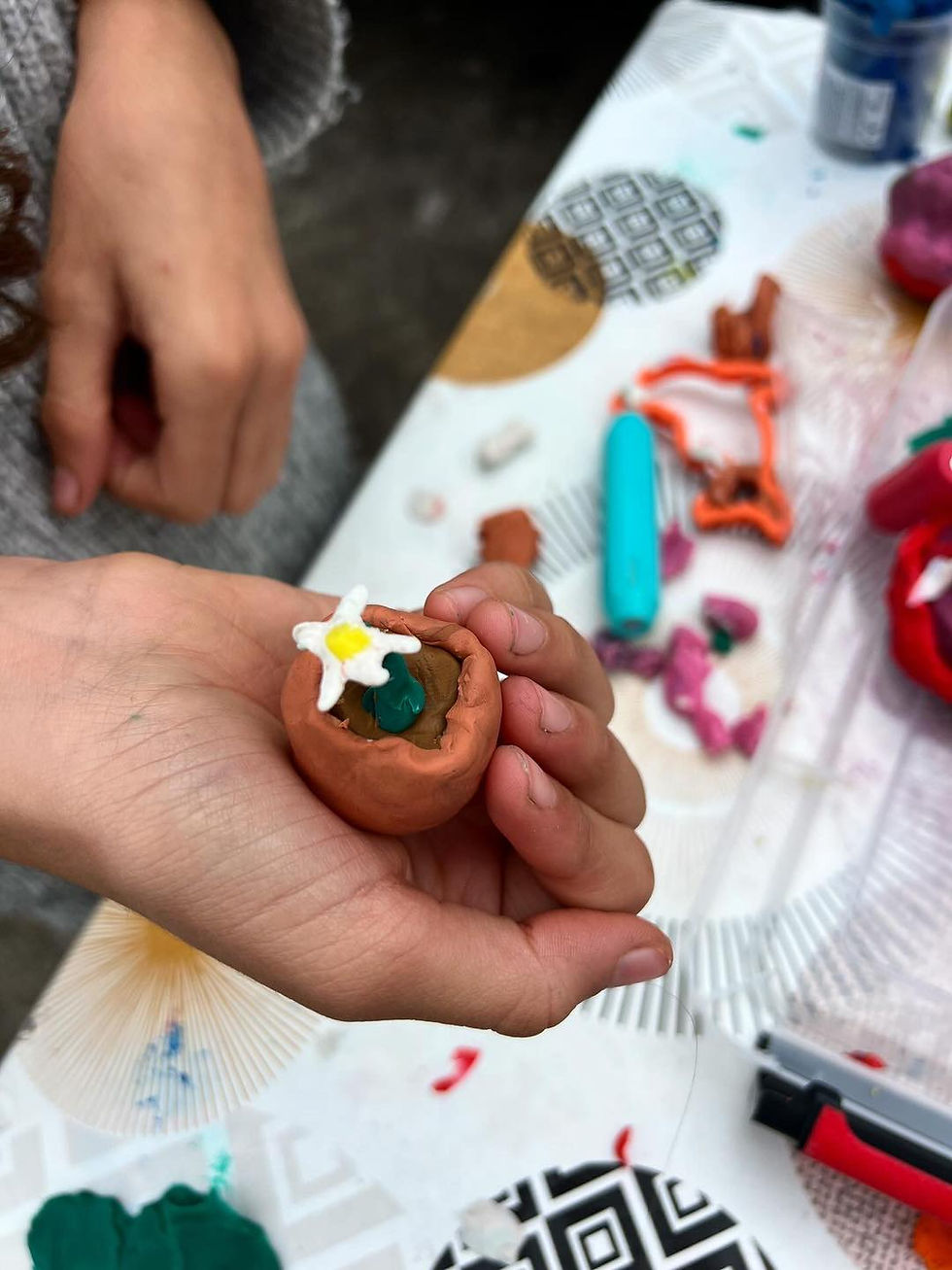Hide and Seek
- Art Refuge

- May 22, 2017
- 2 min read

As a team we’ve reflected on the most fitting title for our work today, moving between ‘hanging in the balance’, ‘mission impossible’ and ‘hide and seek’. We’ve been struck by the human rights violations that are meted out on this population of refugees on a daily basis – now around 500 in number made up largely of unaccompanied minors and single adult men – the inability for people to sleep either in the day or night without fear of being moved on by the police, or worse – beaten, tear-gassed or fired at with rubber bullets – this amounting to an experience that is tortuous; no place to rest, no showers, restricted food distribution. So many men said to us today: “you don’t know how difficult it is.”
HOSTEL
We started the day building a landscape/cityscape together with our friends. As is usual, sadness was present in the room and physical pain and medication discussed, but with each passing week we notice a more natural ability to play with the materials, and a growing resilience. We acknowledged the need to be so patient and bide time.
DAY CENTRE
This week we introduced a large bright new map onto the outside of the building for people to share the route of their journey if they so wished. Inside we set up a space with the table map, bricks and plasticine. With four in the team we were able to cover both spaces with proper attention, and there was a natural engagement with the things we had brought with us.
People are tired; so many people asked for medical help, complaining about a pain in the leg, stomach or heart; many had skin issues, puffy eyes from exhaustion, and some were asking for shoes. It had rained heavily last night and the room smelt of wet socks. Showers and food are now not able to be offered due to new legislation; and yet, when we entered the space we were struck by the care and sensitivity with which it had been reorganised by the Secours Catholique staff along with the changes to time following the two week closure. The plasticine models made with us since February were beautifully laid out on shelves.
We talked to students, builders, accountants, butchers, welders, cricketers. Conversations were troubling; several Afghani men in their early twenties explained to us how they had been in London for a number of years before being deported. Each of them was making their way back to the UK to be reunited with foster families and friends. One explained that he had had to leave Afghanistan because of politics, losing everyone close to him, only to be thrown out of the UK, the country that was supposed to be protecting him. He was despairing of ever getting back to the UK – it’s “Mission Impossible” he said.
SAFE HOUSE
While we sorted and repaired the plasticine objects made over previous months, five young residents of the home sat with us to draw or build structures. The session was calm, focused, with the backdrops to the scenes and the lighting adding shadows and depth – touching on a mournful sadness, playing with day and night, locations near and far, safety and recuperation.



Comments